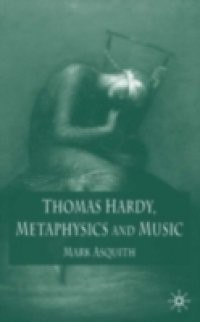Following the success of Far From the Madding Crowd, in 1876 Hardy began a campaign of reading through which he sought to give his novels the intellectual weight necessary to prevent him from being labelled a rural writer. Through scholarly analysis of Hardy's Notebooks, letters and contemporary periodicals, this book explores Hardy's engagement with the Victorian intellectual world, particularly the debates concerning evolution, free will and determinism, mesmerism and musical aesthetics. The 1870s witnessed an enormous interest in musical theory: it was during this period that the ideas of Arthur Schopenhaur and Richard Wagner were popularised in this country, whilst domestic luminaries such as Charles Darwin and Herbert Spencer focussed on the status, origins, and function of music. This book contextualises Hardy's novels within such debates, offering fascinating new insights into his employment of musical motifs to reflect shifting attitudes to human consciousness and the depiction and transmission of emotions. The Hardy who emerges, is not the 'good little Thomas Hardy' so patronisingly dismissed by Henry James, but one of the most innovative and experimental artists of his day.

